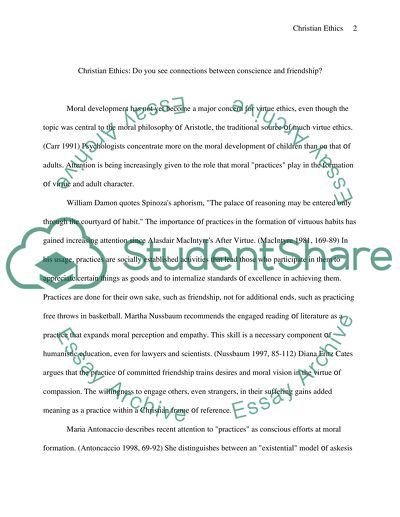Cite this document
(“Christian Ethics Essay Example | Topics and Well Written Essays - 3000 words”, n.d.)
Christian Ethics Essay Example | Topics and Well Written Essays - 3000 words. Retrieved from https://studentshare.org/philosophy/1531990-christian-ethics
Christian Ethics Essay Example | Topics and Well Written Essays - 3000 words. Retrieved from https://studentshare.org/philosophy/1531990-christian-ethics
(Christian Ethics Essay Example | Topics and Well Written Essays - 3000 Words)
Christian Ethics Essay Example | Topics and Well Written Essays - 3000 Words. https://studentshare.org/philosophy/1531990-christian-ethics.
Christian Ethics Essay Example | Topics and Well Written Essays - 3000 Words. https://studentshare.org/philosophy/1531990-christian-ethics.
“Christian Ethics Essay Example | Topics and Well Written Essays - 3000 Words”, n.d. https://studentshare.org/philosophy/1531990-christian-ethics.


